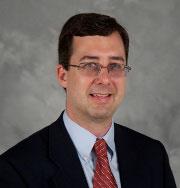event
Building next-generation software for computational chemistry using rank-reduction, multicore, and GPU computing techniques
Primary tabs
Speaker: David Sherrill (School of Chemistry and Biochemistry) (View his website)
Title: Building next-generation software for computational chemistry using rank-reduction, multicore, and GPU computing techniques
Abstract: This talk will describe the development of the PSI4 computational chemistry program, aimed at the efficient evaluation of accurate quantum models of molecules. This open-source software is targeted for initial release in early 2012 and is the result of a multi-site collaboration involving several universities and government labs. Various rank-reduction techniques have been extremely helpful in improving computational efficiency by replacing large 4-index tensors with much more compact 3-index tensors. Although this trades reduced memory requirements for increased flops in some cases, it can also lead to significant reduction in flops in many terms. Speedups due to rank reduction in intermolecular analysis will be analyzed in detail. Preliminary results of efforts in shared-memory parallelization and GPU computing will also be presented.
Bio: C. David Sherrill received his B.S. in Chemistry from MIT in 1992 and his Ph.D. in computational quantum chemistry in 1996, working as an NSF graduate fellow at the University of Georgia. He was an NSF postdoctoral fellow at the University of California, Berkeley. Since 1999, Sherrill has been on the faculty of the School of Chemistry and Biochemistry at the Georgia Institute of Technology. Since 2006, he has held a joint appointment with the School of Computational Science and Engineering. He serves as co-director of the Center for Computational Molecular Science and Technology. He has published over 110 peer-reviewed articles on the development of new quantum chemistry models and their application to challenging chemical problems. He is an elected Fellow of the American Physical Society and the American Chemical Society. Dr. Sherrill is one of the primary developers of the PSI open-source electronic structure theory program package, and he is also one of the authors of the Q-Chem program. He has been an Associate Editor of the Journal of Chemical Physics since 2009.
Status
- Workflow status: Published
- Created by: Daniel Lee
- Created: 01/31/2012
- Modified By: Fletcher Moore
- Modified: 10/07/2016
Categories
User Data

